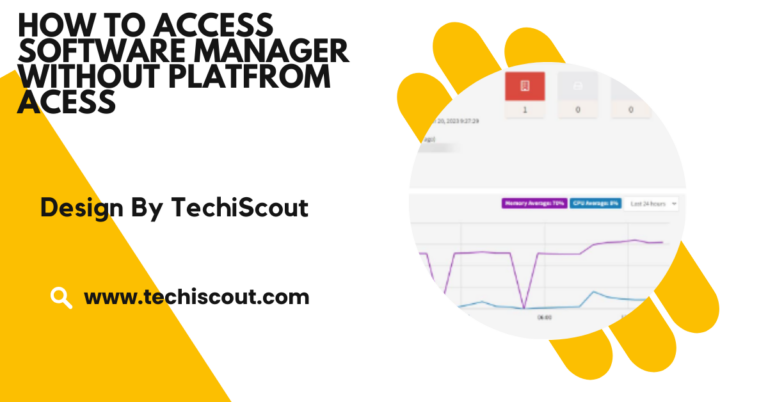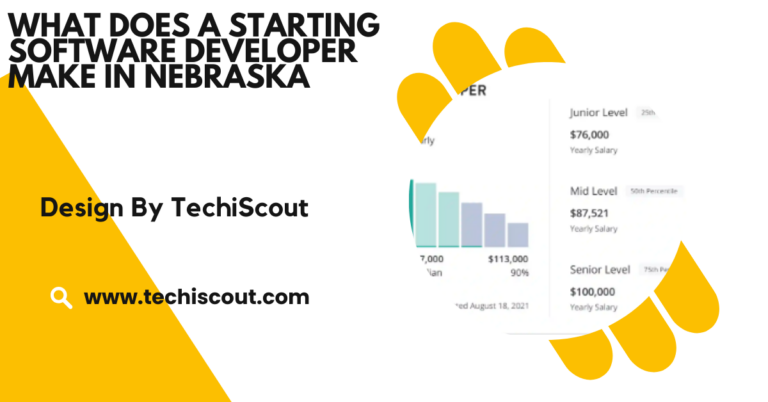How to Become a Software Engineer – A Comprehensive Guide!
A software engineer creates, tests, and maintains software, requiring education, coding skills, and ongoing learning.
Becoming a software engineer is an exciting and rewarding career choice, offering opportunities to work on innovative projects and solve real-world problems.This guide provides a detailed roadmap to help you become a successful software engineer.
Table of Contents
Who Is A Software Engineer:

A software engineer is a professional who designs, develops, tests, and maintains software applications and systems. They work with a range of programming languages and tools to create solutions for various industries, including finance, healthcare, gaming, and e-commerce.
Their role often involves collaborating with cross-functional teams, understanding client requirements, and continuously upgrading their skills to adapt to the rapidly evolving tech landscape.
Steps to Become a Software Engineer:
Understand the Role of a Software Engineer:
Software engineering encompasses diverse responsibilities, including:
- Designing Software: Creating system architectures and planning functionalities.
- Coding: Writing, reviewing, and optimizing code in various programming languages.
- Testing: Debugging and ensuring software runs smoothly across platforms.
- Collaboration: Working with designers, managers, and clients to meet goals.
- Maintenance: Updating and improving existing software for better performance.
Understanding these responsibilities can help you decide if software engineering aligns with your interests.
Choose a Career Path:
Software engineering offers a variety of specializations. Here are some popular paths:
- Frontend Development: Build visually appealing and user-friendly interfaces using HTML, CSS, and JavaScript frameworks like React or Angular.
- Backend Development: Work with server-side logic, databases, and APIs using languages like Python, Ruby, or Java.
- Full-stack Development: Combine frontend and backend skills to develop end-to-end applications.
- Mobile Development: Create apps for Android (Java/Kotlin) and iOS (Swift).
- Game Development: Use engines like Unity or Unreal to design interactive games.
- Data Science and Machine Learning: Analyze data and build predictive models using Python or R.
- DevOps: Manage infrastructure, automate deployments, and improve system reliability.
Acquire the Necessary Education:
Education is the foundation of a software engineering career. Here are your options:
Formal Education:
- A bachelor’s degree in computer science, software engineering, or a related field is a traditional route.
- Some universities also offer specialized master’s programs in fields like Artificial Intelligence or Cybersecurity.
Online Learning Platforms:
- Platforms like Udemy, Coursera, and edX offer affordable courses on software engineering and programming.
- Sites like freeCodeCamp and The Odin Project provide free, comprehensive curricula for beginners.
Coding Bootcamps:
- Coding bootcamps like General Assembly, Flatiron School, and Le Wagon provide intensive training programs that last 3–6 months.
- These are ideal for career changers looking to acquire job-ready skills quickly.
Master Programming Languages:
Proficiency in programming is essential. Focus on languages widely used in the industry, such as:
- Python: Popular for web development, data science, and AI.
- JavaScript: Dominates web development with frameworks like Node.js and React.
- Java: Widely used for enterprise applications and Android development.
- C++: Preferred for game development and high-performance systems.
- Ruby: Known for its simplicity and use in web frameworks like Ruby on Rails.
Start with beginner-friendly languages like Python or JavaScript, and gradually explore more complex options.
Gain Practical Experience:
Practical experience is key to mastering software engineering. Here’s how to get it:
Personal Projects:
- Build a portfolio with projects such as websites, apps, or automation scripts.
- Host your code on GitHub to showcase your skills to potential employers.
Internships:
- Apply for internships at tech companies to gain hands-on experience.
- Internships provide exposure to real-world coding challenges and industry practices.
Open-Source Contributions:
- Contribute to open-source projects on platforms like GitHub.
- Collaborating with experienced developers will enhance your skills and network.
Hackathons:
- Participate in hackathons to solve problems creatively and work in teams under time constraints.
Learn Software Development Tools and Frameworks:
Familiarity with tools and frameworks can set you apart. Key tools include:
- Version Control: Learn Git and GitHub for collaboration and code management.
- IDEs: Use tools like Visual Studio Code, Eclipse, or IntelliJ IDEA for efficient coding.
- Frameworks: Master frameworks like Django (Python), Spring (Java), or React (JavaScript).
- Databases: Learn SQL for relational databases and NoSQL for non-relational databases like MongoDB.
Strengthen Problem-Solving and Algorithm Skills:
Problem-solving and algorithm design are central to software engineering. Develop these skills by:
- Studying data structures like arrays, linked lists, stacks, and trees.
- Mastering algorithms such as sorting, searching, and dynamic programming.
- Practicing on platforms like LeetCode, HackerRank, and Codeforces.
Build a Professional Network:
Networking can accelerate your career. Here’s how to build connections:
- Join tech communities on LinkedIn, Reddit, and GitHub.
- Attend local meetups, webinars, and tech events to meet industry professionals.
- Seek mentorship from experienced developers.
Apply for Software Engineering Jobs:
Once you have the skills and experience, start applying for roles. Here’s how to stand out:
- Tailor your resume to highlight relevant projects and skills.
- Build a compelling LinkedIn profile.
- Prepare for technical interviews by practicing coding challenges and mock interviews.
Tips for Success in Software Engineering:
Stay Updated:
The field of software engineering evolves rapidly, with new technologies and frameworks emerging frequently. Staying informed about trends such as blockchain, artificial intelligence (AI), machine learning, and cloud computing is crucial for staying competitive.
Regularly read tech blogs, attend webinars, and take online courses to enhance your knowledge. Being updated not only improves your technical skills but also positions you as a forward-thinking professional in the industry.
Practice Daily:
Consistency is key to mastering software engineering. Dedicate time each day to coding, whether it’s solving problems on platforms like LeetCode or building small projects.
Daily practice helps you retain knowledge, improve problem-solving abilities, and become more efficient at writing clean and optimized code. Even 30 minutes of focused practice can lead to significant improvement over time.
Collaborate:
Software engineering often involves teamwork, as projects require input from designers, developers, and stakeholders. Collaborating on team projects teaches you how to communicate effectively, manage conflicts, and integrate diverse ideas.
It also enhances your ability to work in Agile or Scrum environments, common in the industry. Engaging in open-source projects or hackathons is a great way to develop these skills while expanding your network.
Seek Feedback:
Feedback is essential for growth. Embrace constructive criticism from peers, mentors, or managers to identify areas for improvement.
Participate in code reviews, where experienced developers can offer insights into best practices, optimization techniques, and potential pitfalls. Treat feedback as a learning opportunity and use it to refine your skills, ensuring continuous professional development.
FAQ’s:
1. What does a software engineer do?
A software engineer designs, develops, tests, and maintains software applications and systems, ensuring they meet user needs and function efficiently.
2. What education is needed to become a software engineer?
A bachelor’s degree in computer science or related fields, coding bootcamps, or online courses can provide the necessary foundation.
3. Which programming languages should I learn first?
Begin with beginner-friendly languages like Python or JavaScript and expand to others like Java, C++, or Ruby based on your career goals.
4. How can I gain practical experience in software engineering?
Work on personal projects, contribute to open-source, join internships, and participate in hackathons to build skills and portfolio.
5. What tools and frameworks should software engineers know?
Familiarize yourself with Git, IDEs like Visual Studio Code, frameworks like React or Django, and databases like SQL or MongoDB.
Conclusion:
Becoming a software engineer requires dedication, continuous learning, and hands-on practice. By mastering programming, gaining practical experience, and staying updated with emerging technologies, you can build a successful career in this dynamic field. Whether through formal education, coding bootcamps, or personal projects, the journey offers immense opportunities to innovate, solve real-world problems, and create impactful software solutions.






